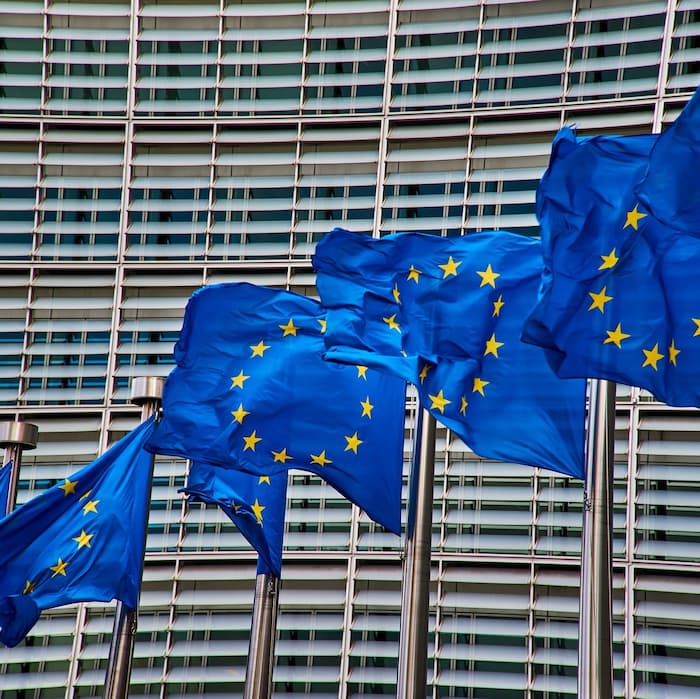Legal
Transatlantic Data Flows, Privacy In Focus After EU Court Ruling

The way that mass transfers of data between jurisdictions are handled and regulated is a significant matter for the wealth management industry, given the cross-border nature of much of its business and those of its clients. There is still a continuing tension between a need for privacy and the suppression of illicit money movements.
The conflicting interests of data security and financial
transparency have been highlighted this week by an EU court’s
refusal to annul a 2023 data transfer pact between the US and
European Union.
Earlier this week, a legal challenge brought before the EU’s
General Court by French citizen Phillipe Latombe sought to
squash the European Commission’s EU-US adequacy decision. Latombe
claimed that the Privacy Shield 2.0 framework used for this
agreement – replacing the earlier 2020 privacy shield approach
– contained shortcomings.
The pact is the 2023 EU-US Data Transfer Framework.
The matter is significant for private banks, wealth managers and
professional services firms whose businesses span the US and
European Union. At a time of concerns about cybersecurity
breaches, and attempts by governments to crack down on illicit
financial flows, the privacy
of financial data is a live issue. It can touch on tax
information exchanges, such as those involved under the US FATCA
legislation and the Common Reporting Standard.
Latombe, a member of the European Parliament, had complained that
the agreement allowed for disproportionate data collection, lacks
transparency and adequate safeguards for Europeans’ personal
information, and offers insufficient legal redress. His was the
first such challenge to the agreement. As various media reports
said, Latombe needed to show judges that the deal affected him
directly as an individual, but he failed to make that case.
More than 2,800 US companies rely on the agreement to conduct
business.
In 2023, the European Commission adopted a new adequacy decision
– Privacy Shield 2.0 – to enable certain EU-US data transfers,
after the former US president Joe Biden signed an executive order
providing for a suite of privacy safeguards and protections.
The US-based International
Association of Privacy Internationals said that this case was
the third time that the adequacy of an EU-US data transfer
agreement was assessed by the EU's highest courts in the last 10
years.
“The latest ruling offers European and US businesses stability
and reassurance at a time of uncertainty between the two
jurisdictions fuelled by concerns around digital trade and
discrepancies over regulatory approaches,” IAPP said in a
statement.
Dublin-based data protection law expert Andreas Carney of
Pinsent
Masons said: “We are getting somewhat used to EU-US
frameworks for the transfer of personal data being legally
challenged. No doubt this latest decision will be seen positively
by businesses relying on Privacy Shield 2.0.”
“The adequate level of protection ensured by the US in respect of
transfers of personal data to organisations in that country, as
affirmed by the General Court’s judgment, is by reference to the
date of adoption of the European Commission’s decision that was
challenged. Whether we should read anything into this is
uncertain. For now, at least, Privacy Shield 2.0 has held up to
judicial scrutiny, which will give comfort to most,” Carney
said.
Another law firm, Lewis Silkin, said the
court’s actions bolstered the agreement, but advised against
complacency.
“While today’s [3 September) decision underscores the continuing
validity of the DPF [EU-US data privacy framework] as a lawful
transfer mechanism, on a practical note, given the chequered
history of EU-US data transfers, many organisations have already
provided an alternative 'fallback’ transfer mechanism, such as
SCCs [standard contractual clauses], in contracts to ensure
compliance in case the DPF would be invalidated in the future,”
according to a note from Alex Milner-Smith, partner and co-head
of data, privacy and cyber, London, and Lee Ramsay, managing
knowlege lawyer, London, at Lewis Silkin.
“So, should an appeal be lodged, there is no need to change
anything until the final determination has been handed down but
an audit of your data transfer mechanisms would be prudent
– and for those who didn’t add in a fallback mechanism now
might be the time to do so,” they said.